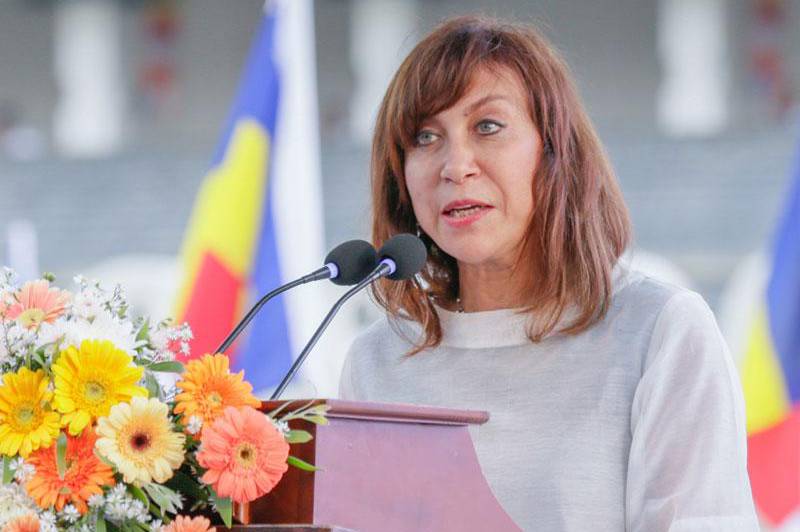UN Resident Coordinator in Sri Lanka Hanaa Singer pointed out specific issues that the criminal justice system in Sri Lanka needs to address in ensuring the protection of human rights while countering-terrorism.
She highlighted the following issues that the criminal justice system in Sri Lanka needs to address,
There needs to be a review of the Counter-terrorism legal framework, including the legislation, the definition of terrorism and addressing the backlog of cases.
Addressing human right violations that take place under activities intended to prevent terrorism
Providing those accused of terrorism with a fair trial and due process
Dealing with non-discrimination and stigmatization of those accused of terrorism and their families
Finally, addressing the need to provide rehabilitation and reintegration for those suspected, accused or convicted of terrorism. To prevent a vicious cycle of hatred and conflict from generation to generation.
She expressed these views at the recently held initiative to enhance the capacity, skills and knowledge of prosecutors to counter terrorism and prevent radicalization in Sri Lanka.
The full statement on this is as follows,
I am glad to join you virtually for this training initiative by the United Nations Office on Drugs and Crime, that focuses on countering terrorism and preventing violent extremism. Firstly, a few notes of appreciation to the Attorney General for facilitating knowledge sharing between UNODC and the Sri Lankan criminal justice system and to the EU for their financial assistance.
Our activities seek to build institutional capacity to effectively prevent/detect, investigate, prosecute and adjudicate terrorism cases in Sri Lanka, in line with the relevant international legal instruments and human rights norms, standards and good practices. The session today will emphasize that human rights must always be respected when handling terrorism cases, especially in the areas of prosecution. Through this partnership we hope to achieve increased awareness among prosecutors on the importance to ensure that those suspected of terrorism are brought to justice fairly and effectively with full respect of human rights.
Effective counter-terrorism measures and respect for the rule of law, human rights and fundamental freedoms are complementary and mutually reinforcing objectives. Because counter-terrorism activities can offer a peaceful, accountable and legitimate response to terrorism – only if they are grounded in a criminal justice process that respects the principles of the rule of law and human rights.
Ensuring that innocent people do not become the victims of counter-terrorism measures should be an important component of our efforts to root-out terrorism. We cannot resort to excessive measures which suppress or restrict individual rights including privacy rights, freedom of thought, presumption of innocence, fair trial, political participation, freedom of expression and peaceful assembly. In order to construct the solid human rights culture required to eliminate terrorism, there is a need to bridge the gulf between human rights norms and their application in reality.
It is widely acknowledged that racism and intolerance can be both a cause and a consequence of violence, insecurity, resentment and eventually acts of terrorism. Terrorism often stems from extreme hatred, and leads to more hatred. We need to eliminate discrimination or perceived discrimination from the criminal justice system in order to provide anyone suspected of terrorism with a fair trial with respect for their human rights.
Here in sri Lanka there are specific issues that the criminal justice system need to address in ensuring the protection of human rights while countering-terrorism. All of you may have your own opinions and discuss these in greater depth during the programme. But I would like to leave you with a few areas to reflect on;
There needs to be a review of the Counter-terrorism legal framework, including the legislation, the definition of terrorism and addressing the backlog of cases.
Addressing human right violations that take place under activities intended to prevent terrorism
Providing those accused of terrorism with a fair trial and due process
Dealing with non-discrimination and stigmatization of those accused of terrorism and their families
Finally, addressing the need to provide rehabilitation and reintegration for those suspected, accused or convicted of terrorism. To prevent a vicious cycle of hatred and conflict from generation to generation.
Thank you for one again to our partners and to all of you for your engagement with this programme, together we can counter-terrorism and create a safe and fair Sri Lanka for all citizens while respecting the human rights of all.
(Daily Mirror)

